There are 60 containers of Ornua’s dairy produce going to the UK each week at the moment, Ornua secretary Anne Randles said at the Irish Farmers Journal/Grant Thornton Navigating Global Trade conference on Friday. In any scenario with the UK leaving the EU, even if still in a customs union or free-trade area, the issue is “we have to get the product into that area and it will require a significant amount of extra paperwork,” she said.
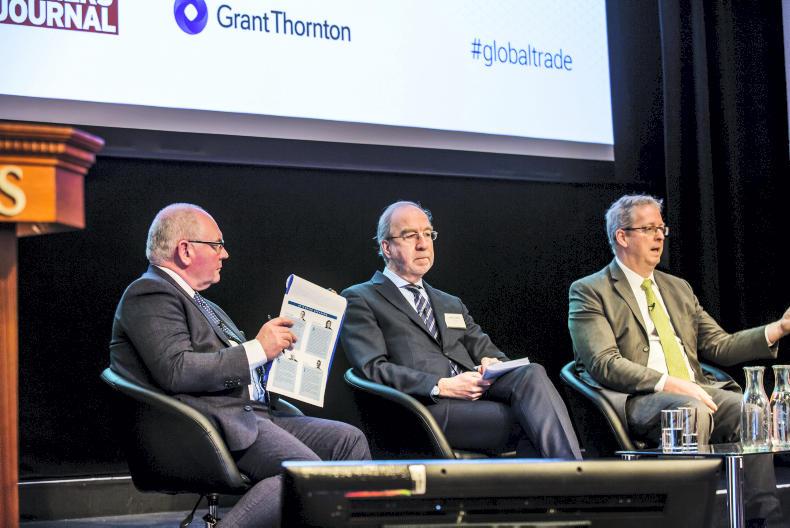
She said the UK accounts for 42% of Irish dairy trade and it is only 60% self-sufficient in cheese. The UK imports 500,000t of cheese annually, 80% of which comes from Ireland and 70% from Ornua.
“No other market can fully replace the UK in volume or value terms,” Randles said. “There is huge demand in the UK for cheddar. Many consumers there regard Irish cheddar as local. We need to leverage the advantages we have in the UK market.”
European Commissioner for Agriculture Phil Hogan speaks to Phelim O’Neill of the Irish Farmers Journal on Brexit and trade at #globaltrade event. @GrantThorntonIE pic.twitter.com/N0jFvE6kr2
— Farmers Journal (@farmersjournal) March 15, 2019
She said that at present, there is no difference whether a container of cheese travels from Cork, Belfast or Holyhead. However, post-Brexit, more time will be required to export the cheese to the UK. A 24-hour notice of an export declaration is needed, which becomes an import declaration on the UK side.
“What we are really talking about is the imposition of a lot more administration. The other issue there is Ornua’s businesses in the UK have been acquired to enhance Irish access to UK market.
“They could, from our operating perspective, be located in Cork, but they will now be cut off from our supply chains and logistics plans, she added.
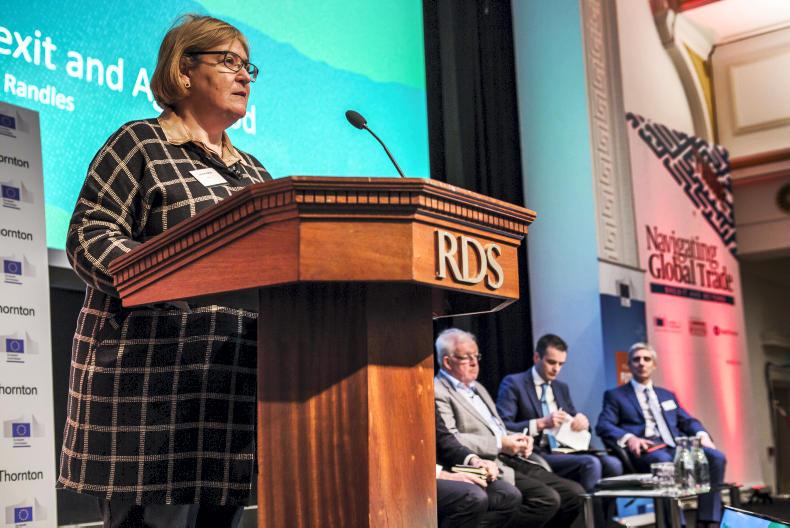
“Ornua also uses the UK land bridge for short-life products. Every additional day means we can’t make the expectations for the commercialisation of that product.”
Randles added that tariffs could make Irish dairy uncompetitive in the UK market.
“That tariff will have to be recouped from the market,” she said. “The UK is a deficit market. If they want to continue consuming the volume of cheese that they do, they have to import it.”
Both the European Commissioner for Agriculture Phil Hogan and the secretary general of the Department of Agriculture Brendan Gleeson declared their support for a suckler beef brand, which would add value in some of Ireland’s main markets. Despite the marketing advantage of having protected geographical indicators (PGIs) for beef similar to that for champagne, it does face some challenges such as agreeing a specification with the EU that is verifiable, according to the secretary general.
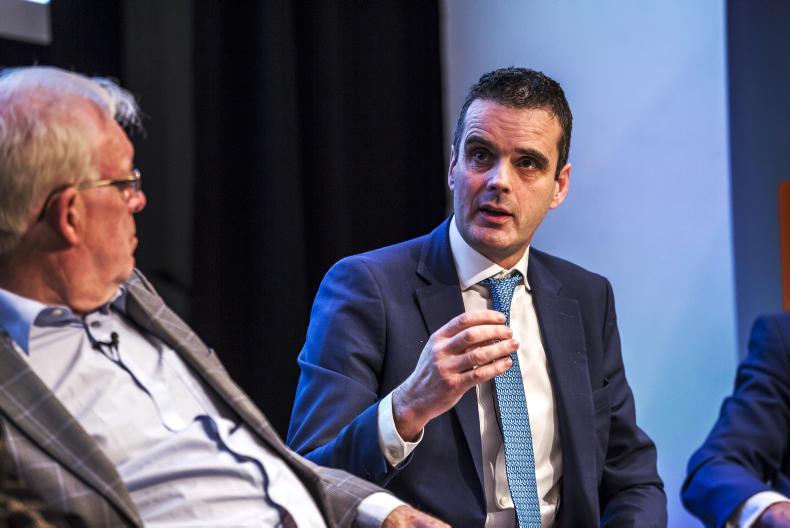
Commissioner Hogan said he believes it is a good idea to build on the excellent global reputation of quality Irish beef. And that it would add value in some of Ireland’s main markets and would help distinguish the product against competing products.
In relation to support from the European Commission as a result of a hard Brexit, IFA president Joe Healy said: “We’re anxious that the support for Irish agriculture is kept as close as possible to the farmer and it’s not lost along the way.”
Director for International Relations at DG Agriculture, John Clarke, talks to Phelim O'Neill of the Irish Farmers Journal at the Navigating Global Trade Conference. #NavigatingGlobalTrade pic.twitter.com/8ItZsq4r1z
— Farmers Journal (@farmersjournal) March 15, 2019
John Clarke, director of DG Agri, said the US and President Trump were living in a glasshouse when it came to global trade and talk of trade barriers. He said there is “zero possibility” the EU will change its standards regime when it comes to hormones in beef or chlorine-washed chicken. Clarke added that the biggest challenges of a trade agreement with China were not around tariffs on goods but more about recognition of the EU’s protected geographical indicators (PGIs) on food products.
David Taylor, New Zealand ambassador to the EU and NATO, said New Zealand has taken a “partnership approach” to global trade since 1973, when the UK joined the EEC. Taylor added that signing a free-trade agreement (FTA) with the EU was the number one trade priority for the New Zealand government at present.
“The EU looms very large in New Zealand thinking right now,” said Taylor. “The current trade relationship between New Zealand and the EU dates back to the Uruguay round of the WTO and it is outdated. It is out of step with the close political relationship between the EU and New Zealand.”
New Zealand Ambassador to the European Union, David Taylor, talks to Phelim O'Neill of the Irish Farmers Journal at the Navigating Global Trade Conference. #NavigatingGlobalTrade https://t.co/bv8H4uvnwd
— Farmers Journal (@farmersjournal) March 15, 2019




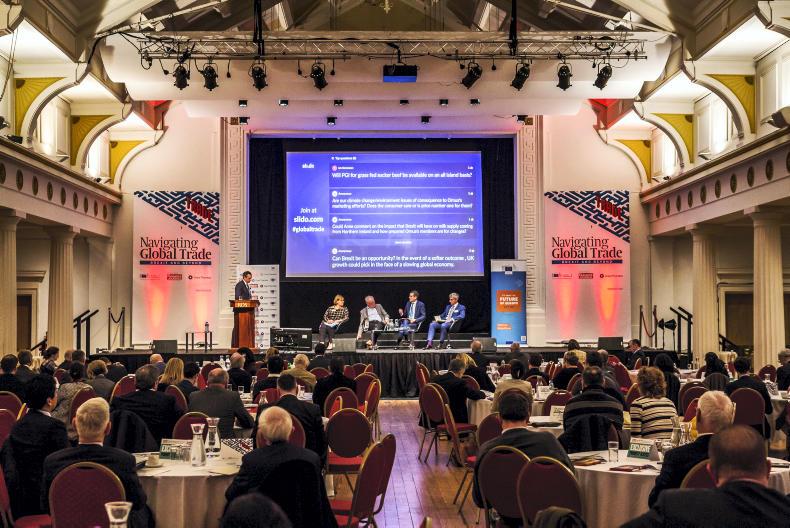


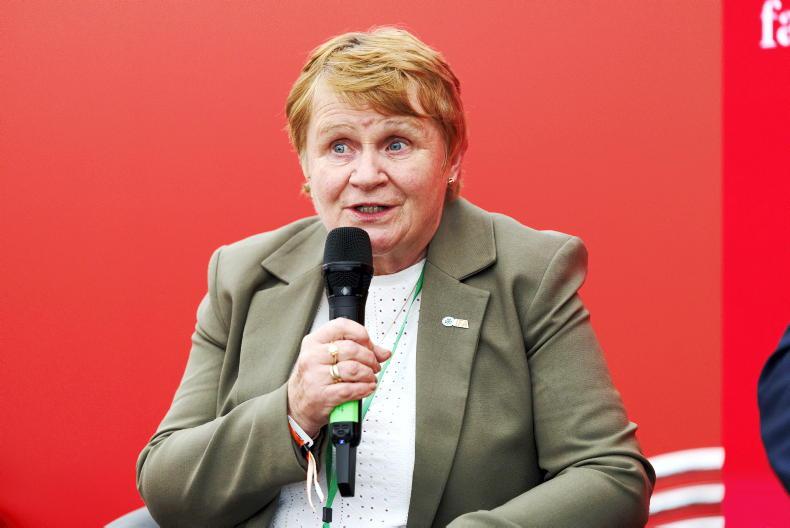
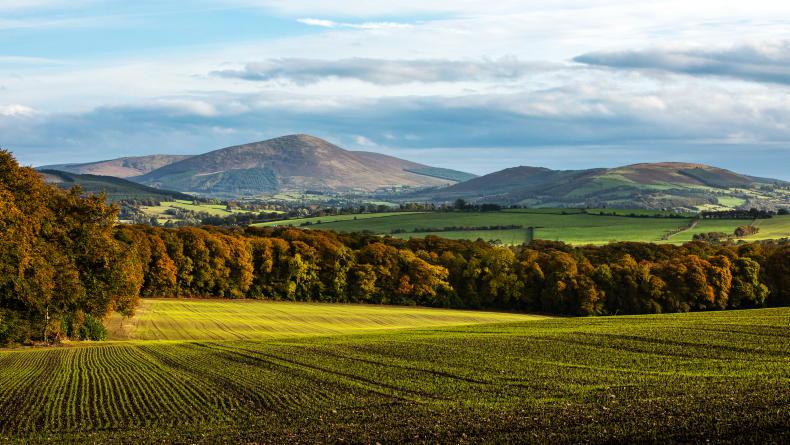
SHARING OPTIONS